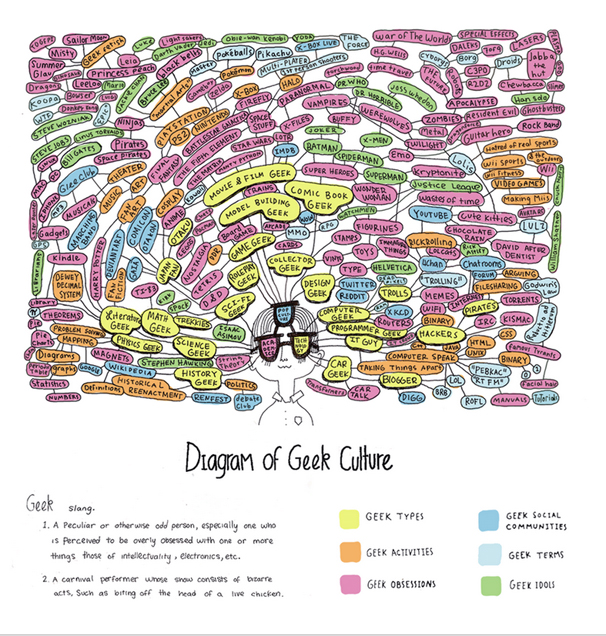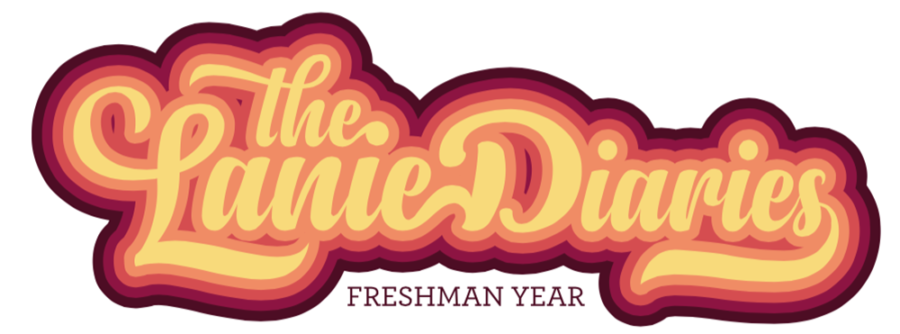With TV shows like “The Big Bang Theory” and “King of the Nerds” or the recent proliferation of movies based on comic book character classics, geek culture is more prevalent than ever before.
What is a geek, and is it different from a nerd? Shelby Gable, a senior theatre major, said the difference is subject matter.
“(A geek) is someone with an obsession, or someone who fixates on one element of popular culture,” she said. “They spend a lot of time into a specific hobby or interest. A nerd is more focused on knowledge and education.”
While most people may assume that geeks are simply an offshoot of popular culture, looking deeply at the definition of culture reveals that being a geek may mean something more.
John Warrick, chair of the Department of Theatre, defines culture in his lectures as “a way of life; the behavior, beliefs, values and symbols that a group accepts that are passed from one generation to the next.”
“It’s a collection of knowledge, experiences, beliefs and values shared by a group of people,” Warrick said.
Anyone who has encountered a geek of any sort can say that geeks fit into this definition. Geeks value passion and knowledge on specific subjects, whether they be Marvel comics or “Doctor Who.”
It is not uncommon to make fast friends at a convention when a fellow fan spots one donning their favorite character’s costume.
Geeks have a language of their own, as well. With the added vernacular of the shows and comics in tow, geeks have added several words to the dictionary such as “cosplay,” “LARPing,” “shipping” and “Whovian.”
Walk past a group of fans discussing their favorite show and sometimes they might as well be speaking Greek.
The best culmination of experience that can best be described as geek culture is ComicCon. While aimed toward comic book geeks, ComicCon attracts the best of all genres of geek: anime geeks, gamer geeks, sci-fi geeks, technology geeks, fantasy geeks, role-playing gamer geeks and people who are a lovely mix of all of the above.
“Cosplay” is a large part of these conventions, adding to the fun with costume contests and the opportunity to get a picture with one’s favorite characters. Sarah Runyan, cosplay artist and a senior theatre major, defines cosplay as “when somebody dresses up as a character from an anime, manga, video game, book, movie (or something else in pop culture).”
“I believe that cosplay is something for everyone,” she said. “If you are wearing cosplay of a character you admire for whatever reason or to show how much you love the story they are from, then you’re doing it right.”
With the rise of superhero movies such as “The Avengers” and “The Dark Knight,” comic book geek numbers have been rising as popularity increases.
“The Big Bang Theory” brought geekiness into the mainstream and Batman and Superman emblazoned merchandise is in vogue, with stores like Hot Topic jumping on the opportunity.
Liz Havard, manager of the the Hattiesburg Hot Topic and proud geek, said she believes accessibility is the key to mainstream geek culture.
“When I was younger, finding comic books and sci-fi goodies required a trip to the comic book store,” she said. “There was only one in Hattiesburg. It was nicely lit and clean, however it was a male-dominated place. Now, if a girl wants to find comic books or sci-fi merchandise, she can simply walk into most retailers or order online.”
With Marvel and DC having slated their production schedules for the next five or more years, the age of the superhero movie has no foreseeable end.
Marvel breaks ground in diversity by announcing the first “Black Panther” film as well as “Captain Marvel,” giving the first stand-alone movies to women and minorities, which has previously been relegated to sidekicks and love interests.
Geek culture is wide and diverse and shows no signs of halting growth. With superhero movies and shows staying on the rise as well as the proliferation of science fiction in media, the age of the geek is here to stay.





























